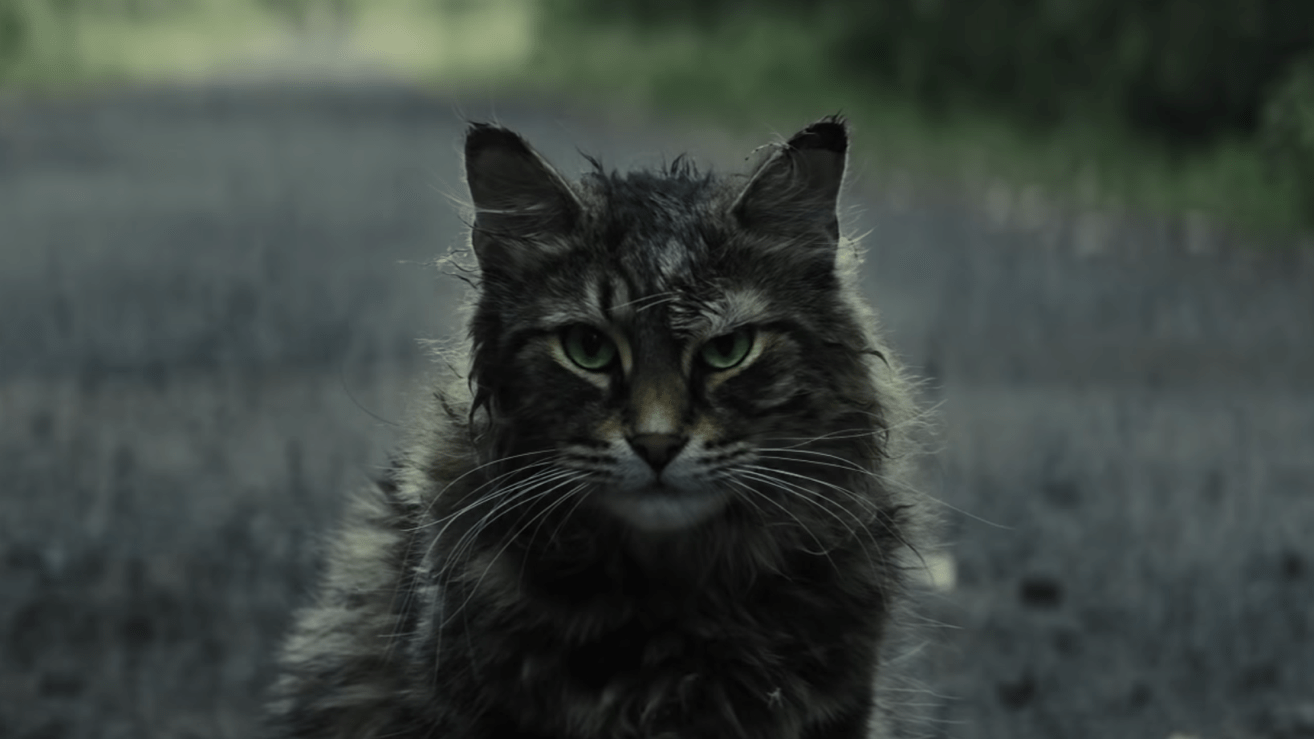Over the last week we saw dozens of films at the South by South West Film Festival in Austin, Texas. There were highs and lows, but each one an experience onto itself. Over the next couple days we’ll be updating this article with capsule reviews and links to full reviews of films from the festival. Check back regularly to see whats new!
This SXSW coverage was done as a joint effort with Cinema As We Know It.
Booksmart

“Easily the strongest feature to come out SXSW is Olivia Wilde’s comedic directorial debut Booksmart. Kaitlyn Dever (Beautiful Boy, Short Term 12) and Beanie Feldstein (Lady Bird) star as Amy and Molly, two brilliant high schoolers on the cusp of graduation, dutifully prepared to chase their grand dreams of leadership and social change in college. All their focus and energy on school has earned them admissions to Ivy League Schools, but it isn’t until the eleventh hour they realize there may have been more to their teenage years than a grade point average. In a last ditch effort to redeem themselves, they plan to attend a wild high school party on their last night before donning their caps and gowns.
Booksmart operates as a coming of age story, which seems to be a running theme the past couple years with young directors on the rise. While on the heels of the excellence of Lady Bird and Eighth Grade, Booksmart’s wholehearted brilliance stands up there with the rest of them. Olivia Wilde’s fresh directorial influence comes with a willingness to break conventional rules and take risks that others more entrenched such a may not. Her style is clearly full of enthusiasm and love for the craft, and her perspective as an actor works as a catalyst for some inspired performances. The entire film is an embarrassment of riches with endless re-watch value. It will without doubt secure a place in audiences’ hearts as an instant classic. Much like Molly and Amy, Booksmart has earned its A+.”
-Megan Bernovich
Full Review Here
Adopt a Highway

“When you saw Marshall-Green as a robot cyborg kicking ass last year, I bet you didn’t think he had directing chops. And good ones at that. With the right balance of heart and empathy, he strikes a winning formula for a story about redemption in the face of extraneous circumstances. Adopt a Highway shows that despite all the things that can go wrong in our life and how dire it can get, with a little hope, humanity, and compassion, we can all get a second chance at life.”
-Greg Arietta
Full Review Here
The Peanut Butter Falcon

“Zak’s down syndrome is often brought up as a rationale to restrict him, but what PBF rightfully asserts is that it shouldn’t matter. He is not seen in the same light as others because of what others project onto him, and not what Zak knows true about himself. Elenor’s character is perhaps representative of the audience and the realization that comes from the film’s message. To see someone with a disability is to automatically assume inability, but what comes to fruition is that their hopes and dreams shouldn’t be shelved because of labels.”
-Greg Arietta
Full Review Here
Pet Sematary

“In examining what has been gained from this updated retelling, there is no avoiding the sacrifices as well. One major infraction is its explanation of the narrative world. Pieces of essential exposition have been cut, leaving holes that would confuse anyone not well familiarized with the 1889 film or original novel. It’s far too easy to miss the connection that the pet cemetery exists because of the semi-trucks, which is critical information to grounding the environment. This film also slacks on justification for the indigenous burial ground, which in other versions is identified as MicMac. Pet Sematary and Stephen King have always had an issue with appropriating and mythicizing Native American lore with the Wendigo, but in this instance it is especially generalized and simplified for easy use. The film entirely drops Jud’s story of the last time a mourning parent resurrected their child, leading to chaos and fatalities in the town. Beyond all of that, the character of Pascow is relegated to the background rather than the driving conscience of the story. His personality has been replaced by some ominous lines, hardly given a second thought. By rushing through proper explanations and disregarding the main moral compass of the film, it leaves the events feeling baseless and shallow.”
-Megan Bernovich
Full Review Here
For Sama

“The film is narrated by al-Kateab as she looks back at her time in Syria and addresses her daughter, Sama. From the day the revolution breaks to the day she flees the country, al-Kateab traces the important moments in her life that happened in the middle of the war, and what that means for the future of the country.
Through violence, injury, and death, al-Kateab and Watts paint a bloody picture of the Syrian Civil War, but they ground it with the people who experience the conflict. To see a city full of life devolve into complete ruin is unworldly, yet al-Kateab speaks about her country with such tender affection that you come to understand why a family would stay—even with young children. Self-sacrifice and revolution are married as revolutionaries like al-Kateab and her husband put everything on the line and stay in Syria with the hope that their children will not have to live under Bashir al-Assad. But as the war rages on, the film transitions into the possibility that the children themselves will have to bring about change, a somber and sympathetic message for a country whose fate is uncertain.”
-Greg Arietta
Full Review Here
Tales from the Lodge

Part of SXSW’s Midnighters programming, the film features a misfit college friend group, now grown up, with unsettled interpersonal relationships. As they awkwardly reunite to spread the ashes of their deceased comrade, this purpose is complicated by the fact that they are perhaps being hunted by a homicidal maniac. Tales from the Lodge is a portmanteau film, featuring a main plotline interspersed with scary tall tales as told by the characters. Each anecdote is directed by the actor telling it, with significant variation in tone and quality. The inconsistency is furthered by a central narrative that substitutes “gotcha!” moments for actual twists. Much of the character’s humor and dialog doesn’t quite come across for a non-British audience. One positive aspect is a solid cast of unconventional figures for a horror film. For its small scope and budget, it’s a passable late-night watch.
-Megan Bernovich
Body at Brighton Rock

The film begins with strong potential to be a survival thriller about a young woman learning self-reliance and courage in a hostile wilderness. The discovery of a dead body is an intriguing hook, but execution grows weaker from there. The plot is somewhat disorganized and fails to explain some of its central plot devices, while saving others for reveals that come too late. While the heroine does fight for her life, there is never a revelatory moment of triumph, but rather a flimsy open-ended conclusion. The film’s visuals have integrity, with striking vistas and vibrant colors that make the watch worthwhile. The lesson to be learned here is that you can either make a good natural survival film or supernatural film, but from what I saw, not both at once.
-Megan Bernovich
The Gift: The Journey of Johnny Cash

This documentary takes a look at the internal life of the legendary Johnny Cash, whose unmistakable voice and vast career redefined American folk, country, and gospel music. The film utilizes Cash’s autobiographic tape recordings to emphasize the power of hearing the “gift” of his voice, along with audio testimonies of fellow artists and his children. This oral storytelling is paired with an abundance of still and video footage spanning his entire life, providing a full and intimate arc. The Gift also candidly examines fame changed his career, as well as his long struggle with drug addiction. The film uses his live performance at Folsom Prison as an extended metaphor for his folk hero status, but also for his tortured inner life. Overall, the film is a wonderful chance to get to know the man behind the music.
-Megan Bernovich
Building the American Dream

Chelsea Hernandez’s documentary is a culmination of years of work assembled into a powerful and personal experience. Building the American Dream follows undocumented individuals in Texas fighting for basic rights in their working conditions. It’s a sobering look at how urban development exploits laborers who have no protections physically or legally, and at how many have lost their lives trying to make a living. Hernandez’s camera is noninvasive but rather a symbol of solidarity and compassion, the action of filming a commitment to representing those ignored by corporations. It also casts a damning light on the people and structures in power that allow wage theft and unsafe conditions to continue. Ultimately, the film underscores the power of solidarity in the face of oppression, and the continued fight for human rights.
-Megan Bernovich
The Beach Bum

“You may be thinking at this point, “This sounds like a fun ass time.” And to that I would say, “Yah, if you’re into Harmony Korine.” Like I said, this film is one giant joke for an hour and half, and by the hour mark it really grades on you. Or at least me. I’m indifferent to Korine; I admire his audacity in some moments and other times times I can’t believe someone thought this was a good creative decision, but that’s kinda what makes his films his films. Those who have seen his prior work and enjoyed it will surely feel the same about The Beach Bum, but at the same time, I don’t think this will do anything to change the minds of those who already have baggage with Korine.”
-Greg Arietta
Full Review Here
Yes, God, Yes

“What Yes, God, Yes does so well is talk openly about female sexuality in the context of a Catholic upbringing. In this repressive environment, Alice is led to believe a number of misconceptions about sex and its peripheries that results in conflicting emotions. In her ‘sex ed’ classes, she is taught to believe that sex is only supposed to occur between a married man and woman, and that anything outside of that, including pleasuring oneself, is a sin. This leads Alice to repress herself again and again until she learns that she will not in fact go to hell for masturbating.
Alice’s conflict regarding her sexual urges reinforces society’s inadequacy in addressing such issues, and Maine tackles it on multiple fronts. One instance may find Alice ridiculed for sexual behaviors she never did while the alleged male recipient gains social currency. Another finds Alice holding back her desires for a camp counselor in fear that she may be viewed as unvirtuous. And as pitched in the synopsis, Alice learning about masturbation in a society that doesn’t even acknowledge it. The scenarios ask the audience to reconsider the ways in which society treats these issues about female sexuality, particularly under religious institutions.”
-Greg Arietta
Full Review Here
The Art of Self Defense

“The film centers on Casey (Jesse Eisenberg) who is your average, awkward, white collar accountant. One evening on his way back from the store, he is the victim of a brutal mugging that leaves him shaken and traumatized. Determined to muscle up and prevent a future attack, his search for self defense leads him to a karate dojo. There he quickly ascends rank and becomes a star pupil of Sensei (Alessandro Nivola), but what he soon learns is there is more to the dojo and his training than he first thought.
The film thrives at dry-pan, dark humor. The script is tack sharp when laughing at things that come off as bizarre, strange, or absurd, but presented as totally normal in the narrative. This sense of humor gives the film an edge to cut deep into the hyper-masculine practices in our own society that we have adopted and normalized. Ditching your plans to learn French because the nation is perceived as weak, or refusing to pet your dog as to not show weakness through compassion are just two of the several dozen sharp witted and exaggerated jokes that Stearns writes into the script to build his hyper-masculine world of the dojo. What are initially pitched as methods of improving your karate abilities are underscored with just the right amount of out-there, rational thinking that makes it funny to laugh at until, eventually, it isn’t anymore, and we realize, ‘Oh … this has taken a dark turn.’”
-Greg Arietta
Full Review Here
Villains

“Directed by Robert Olsen and Dan Berk, Villains caught audiences by total surprise in the best way possible. Simply put, it’s the story of a Bonnie and Clyde pair who are caught in the clutches of a far more dangerous couple with a house full of deadly secrets. Villains gracefully introduces its main characters, Mickey (Bill Skarsgård) and Jules (Maika Monroe), under the context of their motivations and desires within the first two shots of the film. It’s a proficient approach that wastes no time endearing our anti-heroes to the audience. Although they behave as outlaws, their youthful affection for each other keeps us rooting for them at every turn. After bungling a robbery, their dreams of escaping to the sunny and carefree beaches of Florida are put on hold when they encounter George (Jeffrey Donovan) and Gloria (Kyra Sedgewick) during a supply run break-in. Having stumbled upon a horrible secret, it becomes a question of whether or not they can escape with their lives at all as they are ensnared by the sinister couple.
It’s not unusual for many films like Villains making their way to the festival circuit to boast a stacked cast. It’s far rarer to find a film that utilizes their talent so very effectively. Maika Monroe has found a role with plenty of room to explore personality, allowing her to be as feisty as she is heartfelt with Jules’ liveliness complimented by a deeper emotional side. Her past tragedy is subtly woven into the plot without coming to define her character. It’s clear Monroe is amply capable of embodying multidimensional leads and in this role in particular she shines. Bill Skarsgård is her equal match, a chameleon of a man able to inhabit perfectly the sweet, slightly goofy personality of Mickey. He has something of a young Leo Dicaprio heartthrob look going on, with greased hair and bright eyes. Monroe and Skarsgård share an unexpectedly delightful chemistry, playing off each other constantly. Their relationship is the light soul of this dark comedy, both with a high aptitude for quick banter and physical humor. Their bumbling antics and drug habit somehow enhance the charm of these two lovers on the lam.”
-Megan Bernovich
Full Review Here
Good Boys

“Bear with me for a few moments as I try to explain this stilted plot. The film tracks three kids Max, Thor, and Lucas (Jacob Tremblay, Brady Noon, and Keith L. Wiliams respectively) gallivanting around town trying to recover a drone they took from Max’s dad (Will Forte), a drone they stole so they can spy on teenagers and learn how to kiss for a middle school party. The drone crashes and sets them on a looney adventure based on anything the writers thought was remotely funny on paper. You probably read that synopsis and thought it was overtly trivial and you would be right. It’s such a bad premise that it barely, barely, functions as nothing more than a skeleton for the antics written in.
By sheer circumstance, this coming-of-age tale is made even worse by the fact that I had just finished my second screening of Booksmart. Imagine seeing one of the greatest teen comedies of all time that is destined to become an all time classic, and then immediately seeing a raunchy, child-based comedy that has a near one to one thematic core, but executed to a much worse degree. Clearly, this isn’t a fault on Good Boys, but it makes all its shortcomings more blatantly obvious, especially when the film you are inspired by, Superbad, is evoked better by a fellow festival film. To put it simply, it got outplayed in every way.”
-Greg Arietta
Full Review Here







































